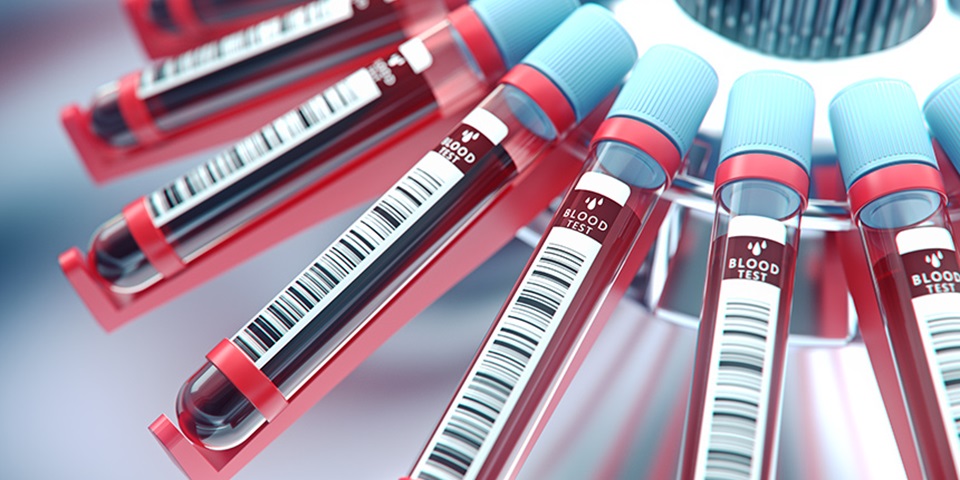Blog
What blood can tell us about the human body

From diagnosing illnesses to treating diseases, blood is the life force of the human body. Find out how becoming a Medical Laboratory Scientist will give you the knowledge to analyse and diagnose key health issues.
How we use blood to diagnose health problems
Medical Laboratory Scientists frequently use blood samples from a patient to diagnose and monitor the treatment of diseases such as diabetes, cancer, and leukaemia. When it comes to initially identifying these illnesses, the first step is often a full blood count, which measures the amount of red blood cells, white blood cells, and platelets.
Red blood cells are responsible for carrying oxygen from your lungs to parts of your body, in addition to removing waste products like carbon dioxide. A low amount of red blood cells indicates anaemia, which can result in symptoms like fatigue and feeling short of breath. This can be caused by a number of conditions including blood loss, iron deficiency, and bone marrow diseases.
White blood cells (leukocytes) are part of the body's immune system, attacking bacteria, viruses, and germs that invade the body and cause infections. A higher-than-normal white blood cell count usually indicates some type of infection or inflammation, while a low amount of white blood cells may be caused by a bone marrow problem, or autoimmune diseases such as lupus.
The smallest of our blood cells, platelets give our blood the ability to clot. Too many platelets can cause spontaneous blood clots in the body which can lead to heart attack and stroke, while too few platelets can cause frequent bruising and bleeding. Both can be caused by diseases like cancer and infection.
While a full blood count doesn't tell medical laboratory scientists why certain cells may be present in high or low numbers, it gives doctors a broad view of your overall health, and can direct to further, specialised testing to reach a specific diagnosis.
How we use blood to treat diseases
In addition to telling us about the health of the human body, blood is used to treat many of the diseases it can diagnose.
Blood cancers like leukaemia and lymphoma can have a serious impact on the amount of red blood cells, white blood cells, and platelets in your body, which can result in serious infections, anaemia and bleeding. Transfusion of red cells, platelets and plasma can allow a patient's levels to return to a safe range, allowing them to undergo life-saving cancer treatment.
A lack of red blood cells can cause fatigue and breathlessness. With a lifespan of just 120 days, millions of red blood cells must be created every day to meet demand. In cases of extreme anaemia that do not respond to other treatments, red blood cell transfusions allow for improved oxygen delivery in the body.
A process called plasma exchange, where a patient’s plasma is removed from the body and replaced with plasma which has been donated by a healthy patient, can be used to treat a wide range of conditions, including immune system problems and to help prevent viral infections.
Due to complications that may occur during or immediately after pregnancy, including severe anaemia, significant bleeding, haemolytic disease of the newborn and immune platelet disorders, blood transfusions save the lives of both mums and babies every day.
Want to learn more? Become a Medical Laboratory Scientist
Medical Laboratory Scientists are an integral part of healthcare teams that diagnose and monitor the treatment of disease.
Murdoch offers a four-year Bachelor of Science in Laboratory Medicine with an emphasis on Work Integrated Learning in real diagnostic laboratories. One of just 11 courses in Australia and New Zealand accredited by the Australian Institute of Medical Scientists (AIMS), our students receive preferential hiring upon graduation.
Graduates of Laboratory Medicine may work in diagnostic pathology laboratories, but also have opportunities to move into medical research and pharmaceutical sales, or onto postgraduate medicine.
Murdoch also offers a range of science courses that set you on your way to diverse career in health.
International student Natalie Rowe chose to study a Bachelor of Science, majoring in Biomedical Science and Biological Sciences with her sights firmly set on a career that will impact healthcare and research systems.
“I truly enjoy the hands-on practicals more than anything. I believe that these classes are the best way to develop a strong understanding of a skill/topic. Most of the things that I’ve learnt in my lab classes manage to retain in my long-term memory.”
“Thanks to Murdoch’s strong links to Perth’s medical research establishments, I will be presented with high research opportunities both on and off campus that will assist my goals.”
For more information, check out our degree in Laboratory Medicine. Or learn more about our study options for international students.Blog
What blood can tell us about the human body
Series
Posted on
Thursday 21 March 2019
Topics